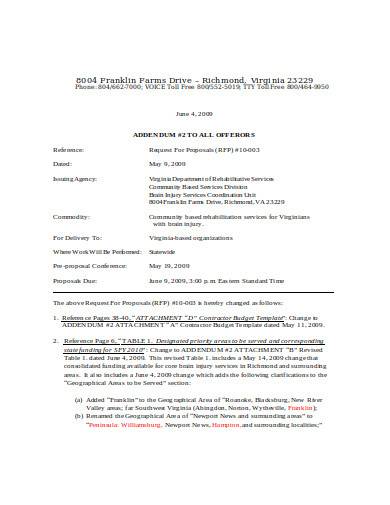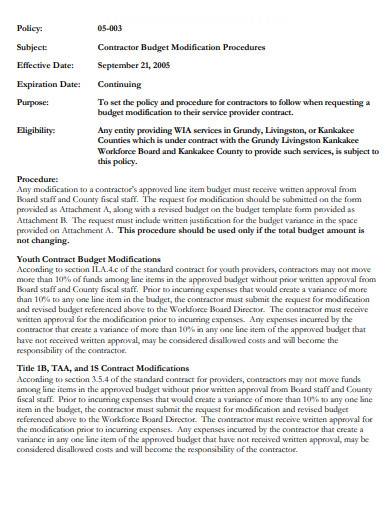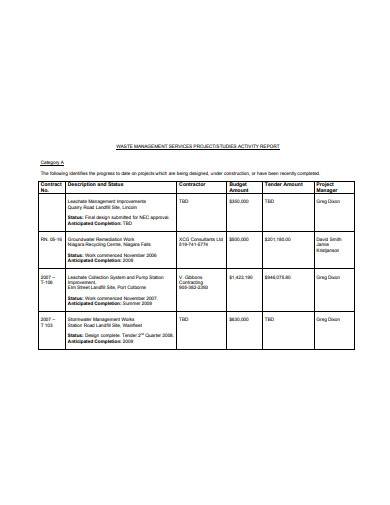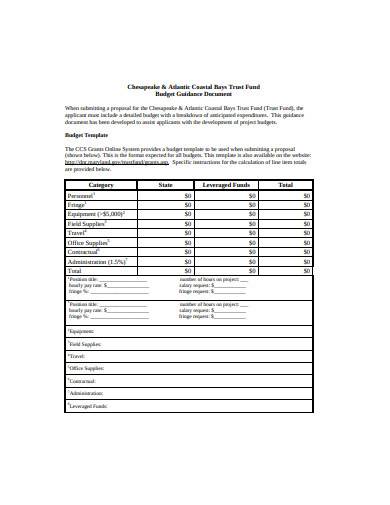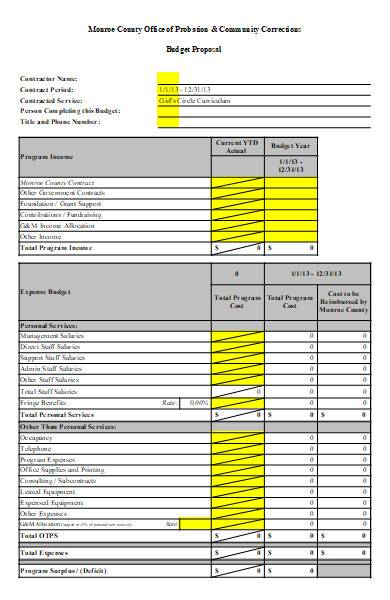The main duty of a contractor is to plan, manage, monitor and correlate the work of the phase. Other roles include making sure suitable site inductions and welfare facilities are given. The contractor budgeting is the process of designing a plan to spend money. This entire spending plan is called a budget. Check out the various contractor sample budget forms provided here which you can choose according to your needs and make proper use of it.
What are the four key phases of the construction budgeting?
Analysis and Discovery
Initiate by gathering your team, since it takes more than one person to plan a budget. The design of your construction team relies on your company’s size and build up. An understanding of your company’s total cost structure is condemning, so make sure at least one member of the team is trusted by the CFO to sufficiently represent that point of view. Your funding for the project should be assured and well-established. Construction projects are costly, so be prepared to withstand invasion without breaking the bank is essential. Research and examine the goals and requirements that you have for this project. Before going to how to figure out why and what of your build. Once you have all of that sorted out, start on the precise ones. Estimate and asses the site conditions and any present documentation. Evaluate your project resources and limitations. Lastly, be aware of specific safety and code requirements, and any allowance you’ll need to move forward.
Design and Development
During this period, you need to regulate the possible scope of your project. The first step is to meet with your architects and design consultants to draw on their expertise as needed. After you figure out your possible work, ask consultants to come up with creative options and pitch them with drawings or models. It’s censorious for all stakeholders and decision-makers to be positioned with the final design before you get started. Once there’s a sign-off, make a list of required materials, and don’t stop to seek help from outside consultants for second opinions. Having a well-experienced engineer gives an approximate for the overall project will allow you to calculate bids from multiple contractors when it comes time to choose one. At the end of this period, finalize your budget and timeline and start asking bids from potential contractors.
Documentation and Pre-Construction
Once you lead through the design and development period, you will need to assure approval of the final design and budget. If the final sign-off comes from the boss make sure that decision-makers grasp the project and are prepared to move forward with it. Before any hassle, have a meeting with all stakeholders analysis to discuss the project, guide any probable issues, and work to find a solution for them. This will decrease the risk from the beginning and help keep your project budget and timeline more steady on track. Keep all documentation in an organized location. Prepare and submit all required paperwork, making sure you give yourself a better head start before you actually need them. When managing your pre-construction, everything should be recorded properly and kept on track. Go to the site often during demolition and pre-construction to make sure everything is moving forward smoothly and as per to your planned schedule.
Construction and Closeout
Literally building and closing out contracts will almost certainly be the longest period of the project. Monitor the build and make sure the progress is keeping as close to your projected schedules and costs as attainable. Even the best set plans will experience obstacles. Keep a thorough change order log to make sure that when changes need to be made, they’re tracked and listed for the future. Figure out the problem dots ahead of time and evolve workarounds. Keep all stakeholders oriented, from contractors to services. Trail your deliverables and all kinds of materials being used. This will help keep your contractors’ advance payments timely, precise, and equitable to the work that has been completed.
3+ Contractor Budget Samples in PDF | DOC
1. Contractor Budget in DOC
The construction budget is the amount of money assigned for a specific building or modifying project. Are you looking for such a contractor budget form which enables you with a complete structured form along with its components? Check out this amazingly built form given in word file especially for you. You can also edit and modify according to your needs. Download it now.
2. Contractor Budget Sample
Construction budgets are used to foretell all costs and expenses of the building procedures. Similarly, we have provided a fully furnished example of such type. Get your hands on it since it will make your task hassle-free and easy. Dive into the details and create a budget plan without any problem.
3. Contractor Budget Report Template
An activity report has been provided here in the form which identifies the progress to date on projects which are being designed, under construction, or have been recently completed where budget details, constructor, description, and status, tender amount, tender manager are mainly specified and listed. The sample here is well constructed and filled up already to help ease your task. You should download it now.
4. Contractor Budget in PDF
5. Contractor Budget Template
The contractor budget includes a detailed budget with a breakdown of anticipated expenditures. This guidance form has been evolved to help applicants with the development of project budgets. So take help from it as it will assist you in creating a proper budget document.
Related Posts
FREE 11+ Contractor Performance Evaluation Samples in PDF | MS Word
FREE 9+ Contractor Bid Samples in MS Word | PDF
FREE 11+ Contractor Checklist Samples in PDF | MS Word
FREE 10+ Contractor Handbook Samples in PDF | DOC
FREE 10+ Retail Contract Samples in PDF | MS Word
FREE 5+ Contractor Disclaimer Samples in PDF | MS Word
FREE 11+ Contractor Agreement Samples in MS Word | Pages | PDF
FREE 10+ Contractor Management Procedure Samples in PDF | MS Word
FREE 10+ Contractor Health and Safety Questionnaire Samples in PDF | MS Word
News Report
Written Warning
Teacher Lesson Plan
Visitors Log
Reflective Writing
Briefing Note

